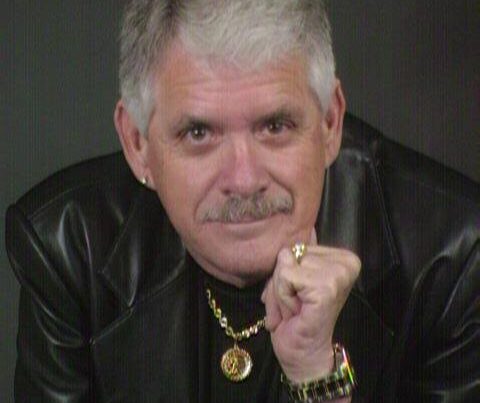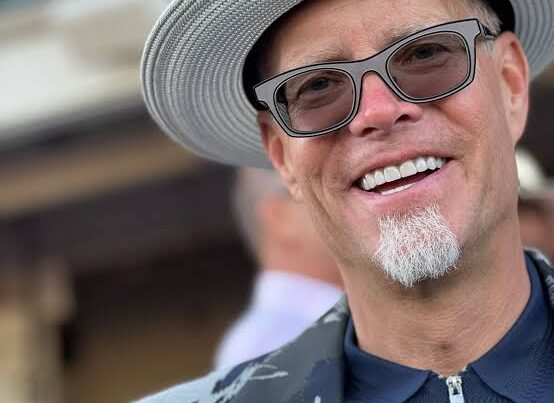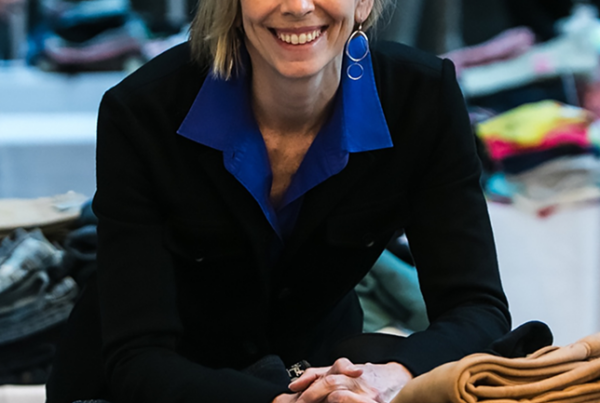Podcast: Play in new window | Download
Subscribe: RSS
How do you align your vision with your soul intention?
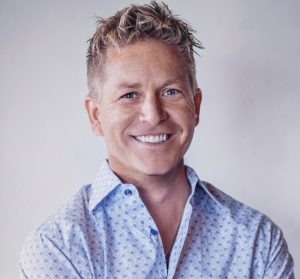
Chris Yonker
Chris Yonker is a Vision alchemist, Speaker, and Author who specializes in Vision Creation to align your business and your life. As a world-leading expert in this area, Chris and his team work with companies (big and small) as well as high achievers, including executives, entrepreneurs, athletes, and celebrities to get clarity on what they really want—and then make the strategy mindset and behavior shifts to create that.
Chris is a seventh-degree black belt, Neuro-Linguistic Programming (NLP) Practitioner, and thought-leader on Personal Performance. He embraces a uniquely collaborative and experiential approach of being in the “zone,” developing clarity and composure under fire, and discovering unlimited potential.
He combines this higher-power thinking with practical strategies from his 21 years of experience of leading a sales team with a Fortune 500 company. As a seasoned veteran who has also worked with numerous mid-market business leaders from a variety of verticals, Chris has seen it all. His holistic approach aims to help improve the mindset, health, and communication of organizations from the top down.
Chris is a regular contributor to the Coaches Council at Forbes.com and is the author of the book, Soul Intention: An Executive’s Guide to Building a Life by Choice, Not by Chance, which is available on Amazon.
What We Discuss with Chris Yonker in this Episode
- Vision creation and soul intention
- The hierarchy of fulfillment
- Struggle as an artificial paradigm
- The power of our words
- Why faith equals power
Transcript Highlights
How did you get interested in vision creation?
At some point I realized that there was a direct correlation to what we focus on intentionally and with conviction and what we are able to manifest or produce. When I say manifest, I don’t mean to sit at home and think about something and God drops it in your lap out of the sky. But I do believe we have a higher level of control in how we want our lives to look, more than some of us realize.
How did you apply your background in sales in the work you do now?
The biggest challenge that I had in sales was going from selling for a company to selling myself. People say, you’re always selling yourself. Well, I don’t know. Go ahead and start selling a service where someone is hiring you to coach, advise, and counsel them, and charge them what you might think is a significant amount of money, and own it. Let me tell you, that really gets into your thinking.
My first sales trainer when I started at 3M in 1992 encouraged me to get better at not only sales, but also personal development. I’ve always been an avid learner so that worked good for me. I realized the more I learned about something, the better I got.
I didn’t really want to get into sales, but it was a fun career to have, because there’s a lot of autonomy you can create. It’s outcome driven. If you work for a good company or good manager you can create your own destiny. I also believe that most solopreneurs and entrepreneurs have some level of sales acumen necessary to be in business. I’m very thankful that I can say it’s something that I mastered.
I could have built my business on that alone but I’ve chosen not to. Not that I don’t work with sales people but typically for the folks I work with it’s not just that.
In your book Soul Intention you talk about becoming “not me”. Can you elaborate on that?
As human beings we create our reality or I call it the map of the world; our interpretations of things that have happened in the past and who we’ve allowed to have influence in our lives. And we artfully start architecting subconsciously our model of the world, specifically 2 things – our belief about who we are and our belief how the world works and what it’s all about, and we can even go further with that with a third point – what is it that we really want.
So the three questions I always like to ask people are, Who am I? Why am I here? What do I want? These are very deep questions. From my coaching aspect, a lot of coaching goes like, “What do you want?” I want this and this and this. “OK, let’s go get that!” But there’s no check in on why you want it. Because society said you should? Because the people on Instagram had it? Because you thought that would make you happy and then once you got it, you realized you didn’t get any happier?
Our self-concept and self-esteem in regards to why we look at who we are is quite frankly a big part of the challenge that we end up holding and having. So when somebody says me, “that’s not really who I am,” well that’s interesting. What does that mean?
I’ve created a story about who I am. If any part of that story is different all of a sudden, I go into conflict and I’ve got to back to homeostasis about who I am.
When I learned NLP, my mentor Wyatt, said that typically people that we’ve become close to and associated with, they don’t like it when we change. It creates a challenge. And in some ways, the ways in which they manipulate us no longer work when we change; if that’s the case, depending on the context of the relationship.
Here’s something interesting to think about. If you got on a plane and you flew somewhere you’ve never been before and basically created a new life; you dressed different, did your hair different, cut loose, whatever that is, no one would treat you any different because they wouldn’t know that wasn’t you.
Part of the reason that is so important to me too is that when you’re in sales one of the things you realize is that your self-image and self-concept becomes your barometer in regards to how far you’re able to go and even how much income. There’s a direct correlation to what I believe about myself and my self-worth and how much money I’ll allow into my world. It’s pretty fascinating. And as you work on this, your relationships get better, your success gets better, and the happiness that we drive is better.
On architecting our vision and the hierarchy of fulfillment…
Going back to the vision side, I started thinking, what would be the hierarchy if I were to build a vision? What would make sense in regards to structure? Sooner or later we’ve got to realize that we’re not going to be here forever. That’s just the reality. So (at the bottom) there’s a context for folks – it could be religion or spirituality. An understanding of what this is about is a good basis to begin, because I believe some of the greatest leverage we have is facing our own mortality. To be extremely intentional about how we live. Especially the way society is today, you can architect it the way you want.
From there it goes to wellbeing, stress management, and how well we care for ourselves. If you’re not healthy, you’re going to suffer to some degree. Then from there, it’s about how I am managing myself mentally, emotionally, and then from there, it’s loving relationships. Do I want a loving relationship? You can define that in a lot of different contexts. Then it goes into family and social, then experiences, and then we can get into career.
I find some folks have it backwards. They start with business or career, and then all these things below get jacked up and I’m trying to help them fix it.
In your book you talk about the struggle being an artificial paradigm. Can you explain more?
I’m not a major fan of the word struggle but I’ll talk about what I mean by that and why I say that. Oftentimes when someone is struggling – and the reason I say this is because my association comes from my experience and my own paradigms – my associations and experience tell me that people who are struggling are usually suffering. And when we’re struggling there is a high level of resistance.
In order to have resistance, something has to be pushing back on what we’re pushing on. So we have to ask ourselves, what are we resisting? Typically it’s something that is presented to us, and we don’t like it. What I’ve learned is that to accept ‘what is’ doesn’t mean you have to live with it, but accepting ‘what is’ is an important element in transformation. Because if I don’t realize where I’m at and accept where I’m at, it’s very difficult to navigate beyond.
Once I become more aware, I can make change much easier than before. There’s a construct and belief with entrepreneurs that I must struggle and work hard to have success. I believe that work is necessary. It’s the hard I have a challenge with.
Now if people believe and want to work hard, they will have to work hard. If they believe they will have to struggle, they will have to struggle. I’ve chosen not to. I don’t like struggling, I’ve tried that. And I’ve found that when we’re struggling and resisting, there’s something we’re not paying attention to. Because when things go well, it’s almost always easy.
So work is necessary, but the struggle and the suffering is truly optional.
In terms of output and recovery, and how important recovery is, all the studies have been done that having the balance, and the stillness and the time and the space actually accelerates progress.
You say faith equals power. How did you discover that for yourself?
We get challenged in our world when we don’t see something that we’re looking to be different. You have an intention and a vision, dream or goal, but there is no evidence in the moment. We get so hung up on the ‘how’ of certain things when we have clarity of what we want. There are two pieces to the faith and trust that are necessary. One is whatever my relationship or belief is in regards to something beyond myself. And then there is the trust and faith in myself.
When I work on those two pieces, I have a lot less to worry about. I’m a recovering worrier. I came from a whole lineage of worriers. It’s a tough habit to get out of and faith has been the antidote.
Episode Resources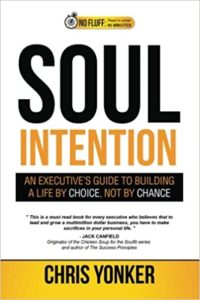
Soul Intention: An Executive’s Guide to Building a Life by Choice, Not by Chance
Connect With Chris Yonker
- Website: chrisyonker.com
- LinkedIn: https://www.linkedin.com/in/chrisyonker
- Facebook: https://www.facebook.com/thechrisyonker
Did You Enjoy The Podcast?
If you enjoyed this episode please let us know! 5-star reviews for the Leaders Of Transformation podcast on Apple Podcasts, Spotify, Pandora or Stitcher are greatly appreciated. This helps us reach more purpose-driven entrepreneurs seeking to make a positive impact in the world. Thank you. Together, we make a difference!








